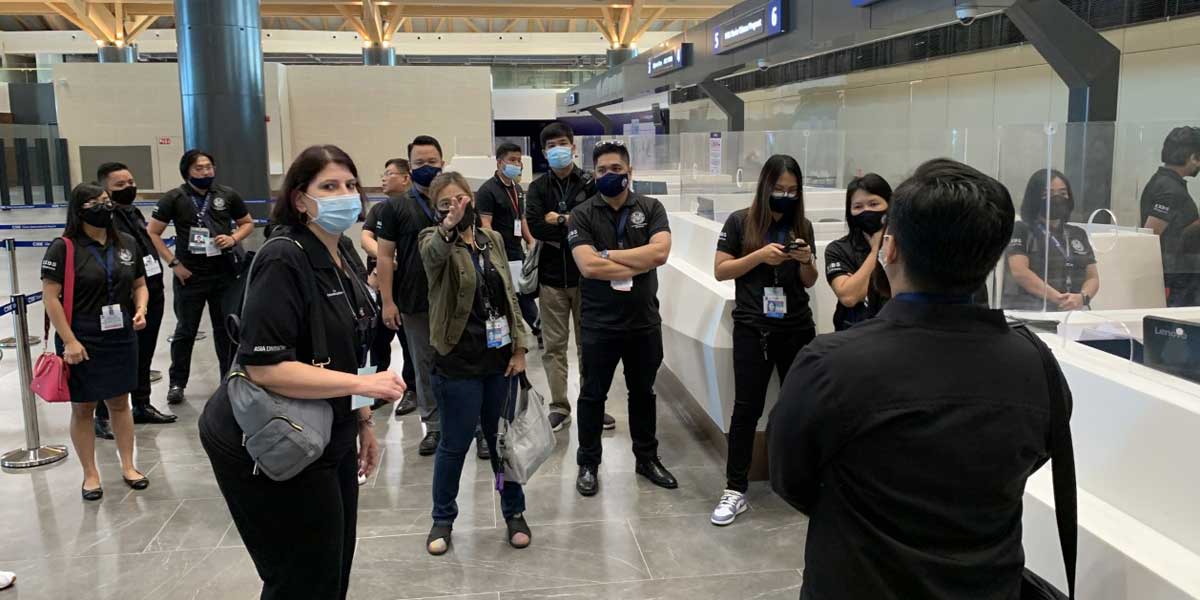The U.S. Export Control and Border Security (EXBS) Program and the U.S. Customs Border Protection (CBP) recently concluded a weeklong training with Philippine counterparts on international passenger interdiction aimed at helping improve Philippine border security.
Held from June 20 to 24 in Clark, the training hosted 21 officers of the Philippine Bureau of Customs (BOC) and Bureau of Immigration from the Clark, Manila, Cebu, and Davao ports of entry.
Customs Deputy Collector Dr. Jesus Llorando said there is a need for close collaboration with Philippine border agencies, while Immigration-Clark Terminal Head Supervisor Ma-an Krista Lapid-Legaspi highlighted the importance of passenger interdiction training and the partnership between CBP and BOC.
EXBS Regional Advisor Ransom Avilla noted the unique challenges and benefits of border security and regulatory agencies working side by side.
“In light of the pandemic, this iteration of the international passenger interdiction training is very timely as the world borders start to open once again,” said Avilla. “While the focus at the borders has been guarding against COVID-19-infected passengers, we need to focus again on suspicious travelers who may take advantage of the disruption the pandemic has brought.”
The training also included a visit to Clark International Airport, which opened to passengers on May 2. The participants were able to see the challenges of opening the newest airport in the Philippines.
CBP Attaché Pete Acosta facilitated discussions on the similarities of the U.S. international arrival process with those implemented at Clark International Airport. CBP trainers Gerard Bradley and Lisa Caselli also showed participants the latest security features of passports and how they could better identify and detect imposters’ attempts to illegally enter a country.
The EXBS program provides assistance to the Philippine government to improve its border security capabilities, strengthen its strategic trade management system, and improve its capabilities in preventing the proliferation of weapons of mass destruction.




















